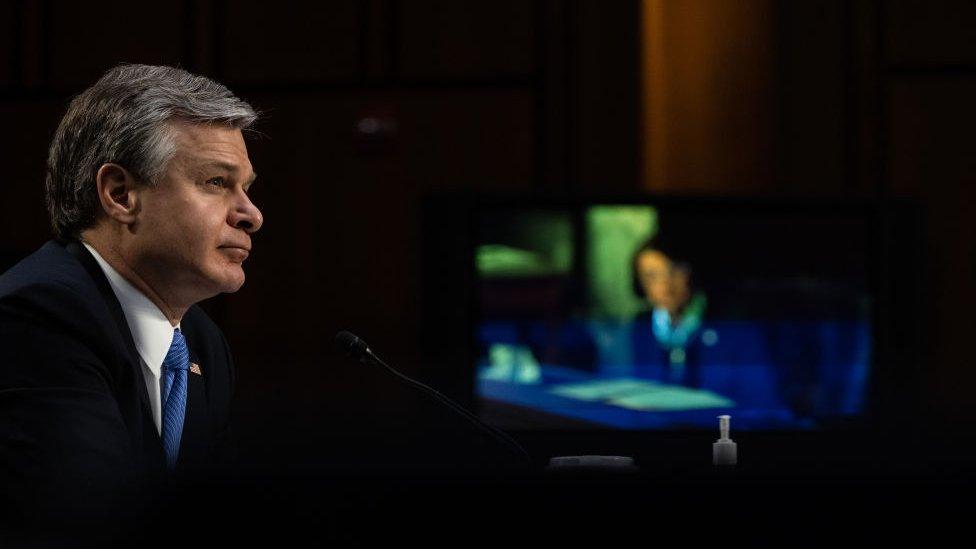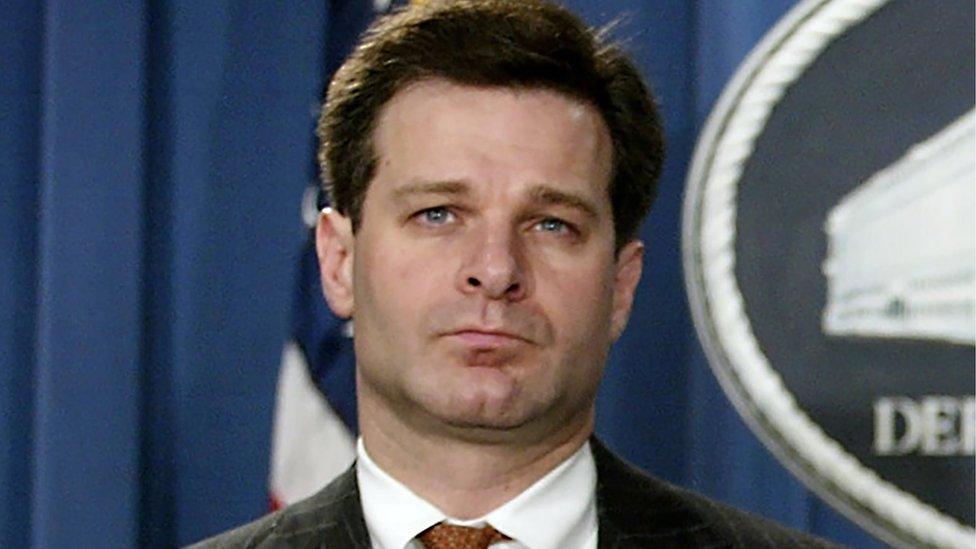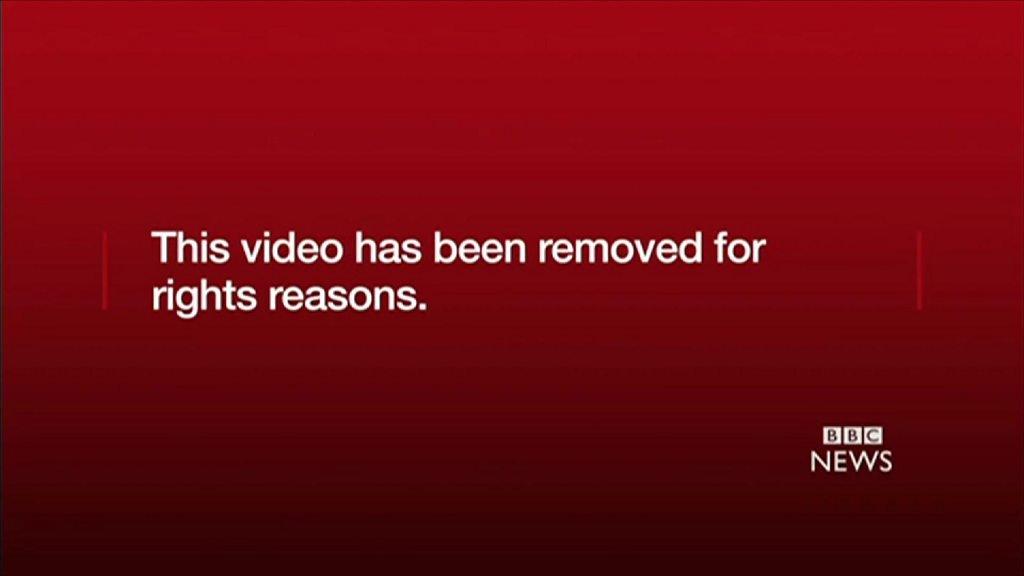Capitol riot 'inspiration for extremism', FBI boss warns
- Published

FBI Director Christopher Wray
The number of US homegrown terror cases has risen sharply, the FBI boss has said, as he warned that the deadly January Capitol riot may serve as 'inspiration' for extremists.
Some 2,000 FBI domestic terror probes are open, up from 1,400 at the end of 2020, Director Christopher Wray said.
Arrests of "racially motivated violent extremists," including white supremacists, have tripled since 2017.
For the first time, Mr Wray called the Capitol siege "domestic terrorism".
The attack could be "inspiration to a number of terrorist extremists," he told a Senate hearing on Tuesday.
Over 260 people have been arrested in connection with the storming of the US Capitol to date.
What did Wray say about domestic terror?
In his first public testimony since the 6 January Capitol attack, Mr Wray warned that accepting such behaviour "would make a mockery of our nation's rule of law".
He noted extremists and "bad actors" were mobilising online, using encrypted messaging platforms to evade authorities.
This video has been removed for rights reasons
"Terrorism today, and we saw it on January 6th, moves at the speed of social media," Mr Wray said, adding that without a solution, "it's not going to matter how bulletproof the legal process is, or how horrific the crime is, or how heart-breaking the victims are".
Mr Wray said the greatest dangers are likely from "lone actors" who have been radicalised online and are "motivated either by jihadist inspirations or by a variety of domestic inspirations".
What did he say about the riot?
Mr Wray denied a theory floated by some supporters of former President Trump that the Capitol attack was carried out by left-wing agitators in disguise.
FBI investigations to date revealed "quite a number" of the extremists participating in the riot belonged to far-right anti-government militias, he said.
"Foreign adversaries" were also taking advantage of the 6 January riot to "amplify their own narratives," he added.
Mr Wray had not previously spoken publicly about the attack at the US Capitol, although he has worked with local law enforcement and briefed lawmakers in private.
How did he respond to criticisms of the FBI?
Senators initially focused on questions over how the bureau handled a local field office report released the day before the siege that warned of violence in Washington.
The US Capitol Police has said they did not know about the report and received no intelligence from the FBI about the day of the attack.
Mr Wray countered that the report was sent out by the FBI's joint terrorism task force, discussed at a command post and posted to an online portal that other law enforcement agencies can access.
He said he had "no good answer" about why the field report was not taken more seriously and had not personally seen it until a few days later.
Who appointed Mr Wray?
Christopher Wray was appointed to the top FBI post in 2017 by former president Donald Trump.
He was confirmed 92-5 by a strong bipartisan majority of the US Senate.
He replaced James Comey, who was dismissed by Mr Trump for his role in the FBI investigation into the president's connection to Russian election interference in 2016. Mr Comey had also courted controversy for his handling of the FBI probe into Hillary Clinton's emails.
Related topics
- Published7 June 2017

- Published9 February 2021
